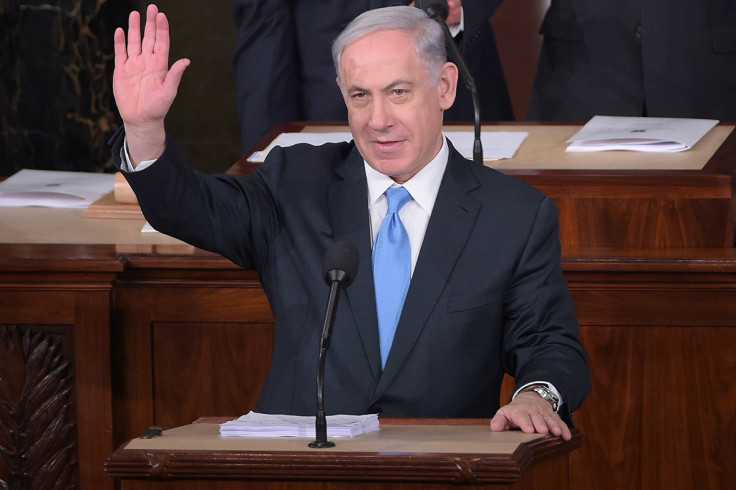Iran's nuclear programme is a 'threat to the entire world' says Netanyahu

Israeli Prime Minister Benjamin Netanyahu has warned US Congress that a deal under discussion on Iran's nuclear programme could "pave its way to the bomb".
He spoke out about an emerging agreement between Iran and the United States, saying: "The greatest danger facing our world is the marriage of militant Islam with nuclear weapons," he said before a packed House chamber that drew loud applause and standing ovations from Republicans.
Netanyahu said that with the concessions the United States was prepared to make Iran would not only gain nuclear weapons, but also free them of international economic sanctions.
The result for Iran, he said, would be "aggression abroad and prosperity at home."
Instead, he said that if Iran wants to be "treated like a normal country, it ought to behave like a normal country."
"We've been told that no deal is better than a bad deal. Well this is a bad deal, a very bad deal," he said.
There was a more restrained reaction from Democrats in an outspoken speech that has caused political controversy between the two countries.
House Democratic Leader Nancy Pelosi was seen to refrain from applauding on several occasions, and when the Israeli leader called for holding out for a better deal with Iran, she shook her head in disagreement.
At the White House, Obama took issue with Netanyahu's comments. "On the core issue, which is how do we prevent Iran from obtaining a nuclear weapon, which would make it far more dangerous and would give it scope for even greater action in the region, the prime minister didn't offer any viable alternatives," he said, according toan AP report.
The White House also showed its disapproval with Netanyahu by sending Vice President Joe Biden on an overseas trip that meant he did not fill his customary seat behind the House rostrum during the speech. The Israeli leader also did not meet at the White House with Obama on his trip to the United States.
The US, UK, France, Germany, Russia and China are working towards reaching an agreement to cut back on Iran's nuclear programme in exchange for sanctions relief.
There are concerns that Iran is building a nuclear bomb – which has been denied by Iran.
Negotiators are moving towards an end of March deadline for an outline agreement with Iran, which would be followed by a more in-depth deal by the end of June.
© Copyright IBTimes 2025. All rights reserved.




















